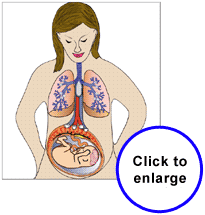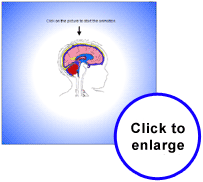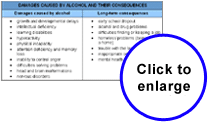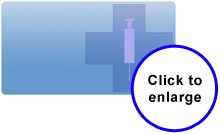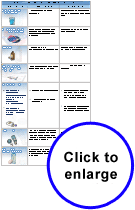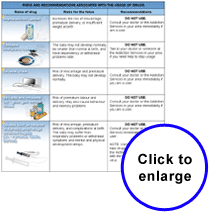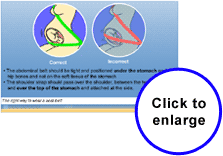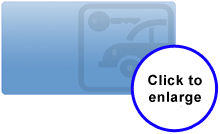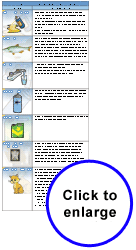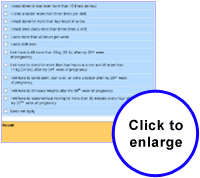B. HEALTHY CHOICES
When you are expecting a baby, there are a lot of things to think about. There are also several choices to make. Should you change your eating habits? Can you travel without risk? Can you take medication? This section will give you the opportunity to think about these questions.

a. Diet
During pregnancy, your diet is important because you are also feeding your baby. You must, therefore, make good healthy food choices.
Certain pregnant women have more appetite and others less. It may happen that you crave for certain foods that you are not used to eating. Each woman's experience is unique.
The important thing is to eat a variety of healthy foods. By eating healthy, you will gain the necessary weight for your baby's proper development.
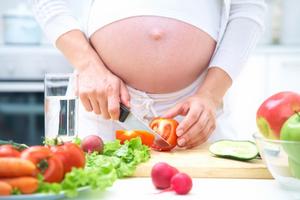
You will find more information about healthy eating during pregnancy in Module 5 entitled "Healthy Diet".
b. Dental Care
Taking care of your teeth is very important during pregnancy. Pregnancy affects every part of your body including your teeth and gums. Plaque develops more rapidly and your gums can become red, sensitive, and infected. It is very important to brush and floss your teeth regularly.
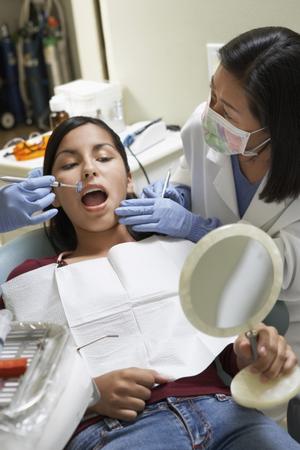
It is recommended that you visit a dentist during your pregnancy. Don't forget to tell him/her that you are pregnant.
Continue to take care of your teeth after the birth of your baby. Your teeth, as well as those of your children, must last for life.
c. Cigarettes
If you are a smoker, there is no better time to quit. When you smoke, so does your baby. Think of what this means before lighting a cigarette.
Even if you don't smoke, secondhand smoke can harm your baby.
This is what happens to the baby when the mother smokes or breathes secondhand smoke.
Creating a Smoke Free Environment for Your Children
A video on the social impact of second-hand smoke on young families. Created by the Best Start Resource Centre
For information about stopping smoking, you can contact the Smokers Helpline.
Smokers' Helpline is a free, confidential service operated by the Canadian Cancer Society
offering support and information about quitting smoking and tobacco use
Website: www.smokershelpline.ca
Phone: 1-877-513-5333
1. The Dangers of Cigarettes
Cigarettes can cause problems both to the mother and the child.
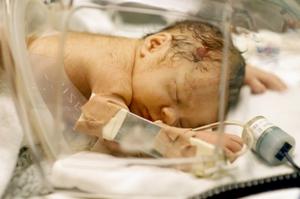 |
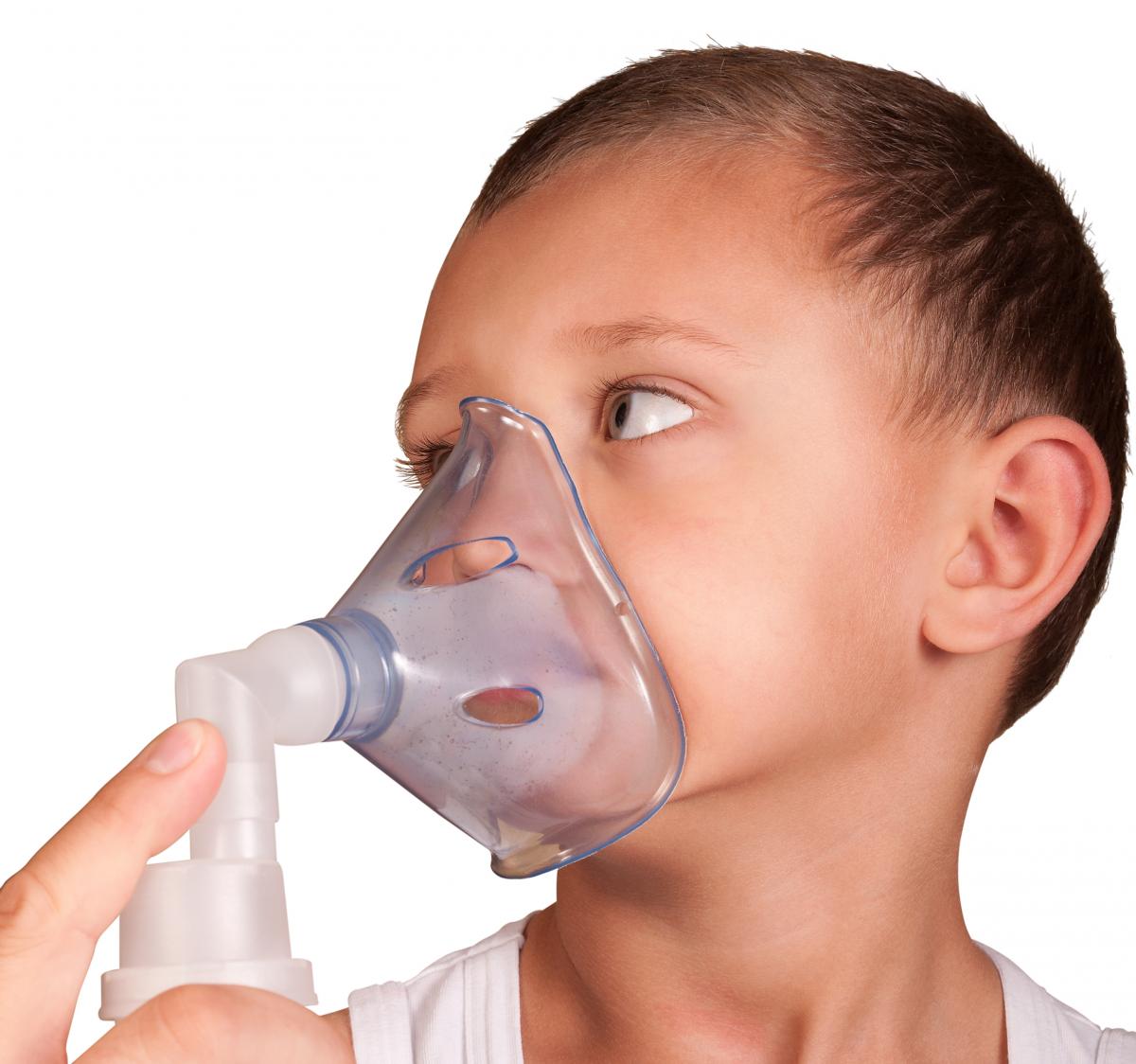 |
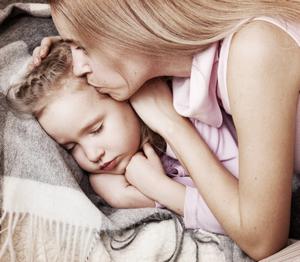 |
| The dangers of cigarettes | ||
Test Your Knowledge
|
|
The following exercise will help you understand why cigarette smoke is dangerous during pregnancy and after the birth of the baby.
Click on the option button that matches the correct answer and validate your answer by clicking on the «Check» button.
|
1 |
Smoking increases the risk of miscarriage. |
|
2 |
Smoking increases the risk of premature birth. |
|
3 |
Smoking can have an effect on the baby's weight at birth. |
|
4 |
Smoking can have an effect on labour and delivery. |
|
5 |
Smoking increases the risk of death in newborns. |
|
6 |
Nicotine found in a cigarette enters the breast milk. |
|
7 |
After the birth, the presence of cigarette smoke in the baby's environment causes less damage. |
2. How to Avoid Smoke
Maybe you think that quitting smoking during pregnancy will increase your stress. However, remember that smoking is a stress for your body. If you smoke, your baby's heart and yours beat faster and your blood pressure is higher. If you quit smoking now, you will protect your baby from the most harmful effects of tobacco. In addition, once at home, your baby will not be exposed to cigarette smoke.
If you live with smokers, explain to them that their smoke can harm your baby. Even when they are not ready to quit, you can set certain rules to decrease the amount of cigarette smoke in your home.
Here is what you can do to reduce cigarette smoke in your environment.
Smoking is an addiction. Everyone knows that it is very difficult to quit smoking but millions of people have succeeded. When you are pregnant, the most important thing you can do for your baby is quit smoking. Talk to your health care provider before using a nicotine patch or nicotine gum.
If you need help to quit smoking, contact Addiction Services, Public Health Offices, Canadian Lung Association, Canadian Cancer Society, your health care provider, the New Brunswick Anti-tobacco Coalition or the Smoker’s Helpline.
Smoker’s Helpline: 1-877-513-5333 or www.smokershelpline.ca/
d. Cannabis
Even though it’s legal for adults in NB to buy cannabis (or marijuana), it should not be used while pregnant or breastfeeding. Using cannabis during pregnancy may cause your baby to be born with a low birth weight. It can also get to your baby in your breastmilk. Cannabis could harm your baby’s brain and lead to life-long problems with learning, hyperactivity, depression, and anxiety. There is no safe amount to use while you are pregnant or breastfeeding. If you find it hard to stop using cannabis, you should try to cut back. Please talk to your health care provider or contact Addiction Services in your area if you need support.
e. Alcohol
When you drink, so does your baby. If you consume alcohol, your baby may be born with FASD (Fetal Alcohol Spectrum Disorder).
FASD includes the abnormalities caused by the consumption of alcohol during pregnancy. FASD is the main known cause of congenital malformations in Canada.
This is what can happen to the baby if the mother drinks alcohol.
Certain damages are not visible at birth but their long-term consequences are serious.
The following table summarizes harm done by alcohol consumption during pregnancy as well as the long-term consequences. Food for thought...
Alcohol, even the smallest quantity, is dangerous during pregnancy. The best thing to do is avoid alcohol during pregnancy.
If you drink alcohol, note that all types are dangerous and that there is as much alcohol in a bottle of beer as in a glass of wine or an ounce of liquor.
If you are a heavy drinker, you may need help to stop. For your health and the health of your baby call the support service agencies for help. You can contact a local addiction service, ask your health care provider or a public health nurse about the programs available in your area.
New Brunswick Addiction Centres: http://www.gnb.ca/0378/centers-e.asp
Public Health Agency of Canada: http://www.phac-aspc.gc.ca/fasd-etcaf/index-eng.php
f. Medication
As soon as you find out that you are pregnant, tell your health care provider about the medications you are taking. These include the medications prescribed by a health care provider and all the products you can purchase in a drugstore such as aspirin, pain killers, cough and cold preparations and even vitamins.
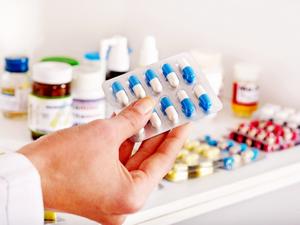
For safety measures, take only medication prescribed by your health care provider and follow the directions carefully.
If you consult with more than one health care provider, be sure that they are all aware of your condition. They should be informed if you are taking medication.
All the medications that you take can affect your baby. Therefore, before taking any type of medication, ask your health care provider, pharmacist, or dentist the following questions.
Here is a list of the most common medicines. You may consult this table to find out more about the risks these medicines represent for your baby during pregnancy.
g. Drugs
If you take drugs such as marijuana, cocaine, heroin, or speed, your baby also takes these drugs. All drugs affect your baby who could develop a dependency to these drugs. Drugs are dangerous for you and your baby.
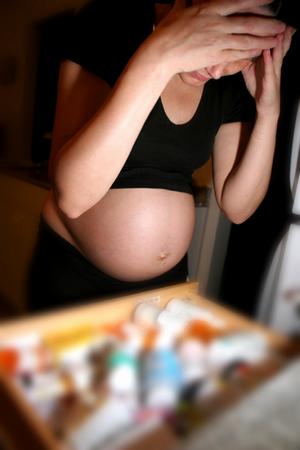
When a woman smokes, drinks, or takes drugs, the baby is subjected to the same effects.
If you take drugs, you may need help to stop. For your health and the health of your baby call a support service agency for help. You can contact a local addiction service or ask your health care provider or a public health nurse about the programs available in your area.
Here is a list of the most common drugs. You may consult this table to find out more about the risks these drugs represent for your baby during pregnancy.
h. Caffeine
Many people take caffeine without knowing it. Did you know that there is caffeine in coffee, tea, colas, chocolate, and many medicines?
 |
 |
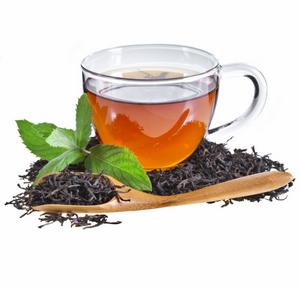 |
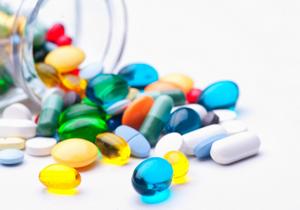 |
| Example of caffeine | |||
Nobody really knows the effects of caffeine on the fetus. We do know that caffeine is a stimulant and it makes people nervous. It is a good idea to reduce the quantity of caffeine.
To what level should you reduce the amount of caffeine? The following suggestions will help you remain within the acceptable limits:
- Drink no more than one or two cups of coffee or tea daily.
- Read the labels on foods, beverages and medicines.
- Select the products with less caffeine.
i. Infection and Illness
Avoiding sick people while pregnant makes sense. Stay away from people who have a cold, a cough, a sore throat, or the flu.

If you are ill during your pregnancy or have flu symptoms, consult your health care provider. Do not take any medication without first consulting your health care provider. If you have a cold or a minor illness, rest, drink a lot of liquid and use a humidifier.
If you have been exposed to a serious illness including Sexually Transmitted Infections (STI), consult your health care provider.
j. Travels and Trips
Your decision to travel depends on your health and the length of the trip. If in doubt, consult your health care provider.
 |
 |
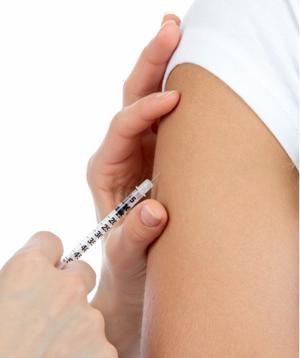 |
1. Travelling by Car
2. Travelling by Plane
Most airline companies require an authorization letter from a doctor before allowing a pregnant woman to travel during the last month of pregnancy. To avoid problems, check with the airline company before buying your tickets.

Here are a few tips for traveling by plane.
- Wear wide and comfortable shoes in case your feet swell.
- Drink plenty of liquids to prevent dehydration.
- Walk up and down the aisle at least once every hour. If not, move your legs in order to help blood circulation. Support stockings could be useful.
- Avoid crossing your legs.
3. Mandatory Vaccination
If you intend to travel to a foreign country which requires certain vaccinations,consult the Canadian Victorian Order of Nurses (VON) in your area.

Tell them which country you intend on visiting and that you are pregnant. They will tell you if the vaccines you need are safe during pregnancy.
Travel Health: http://www.phac-aspc.gc.ca/tmp-pmv/index-eng.php
k. The Hazards in Your Environment
l. Pregnancy and Work
In most cases, you can continue working during your pregnancy. You may have to rest more and change certain things to be more comfortable at work.
Many women require more rest during the first three and the last three months of their pregnancy. If you can lay down a while on your side during your dinner hour or during the breaks, do it.
1. Strenuous Work During Pregnancy
2. Hazards in the Workplace
In certain workplaces, there are products or devices that can cause malformations or miscarriages. The most important sources of danger are chemicals, solvents, gases, metals, and radiation. If you have any concerns, consult your health care provider. It is up to you to inquire about the risks at your job.
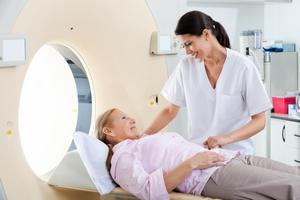
You can also get information from your health and safety committee at work. If there is no committee in your workplace, this may be a good time to organize one with your colleagues.
